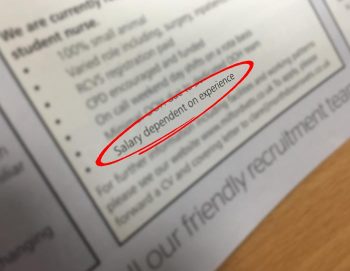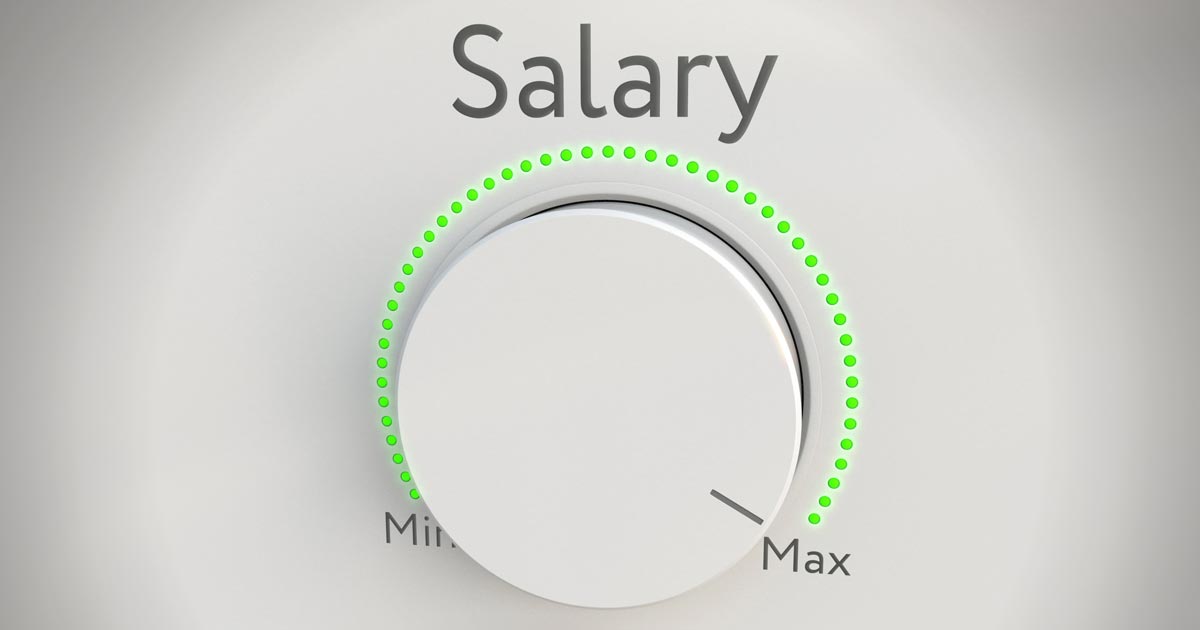January can be a busy time in the job market as the new year makes people evaluate their lives and consider making changes, and when it comes to resolutions that actually stick, the plan to change jobs is up there.
Whatever the reason may be for moving roles, there is a phrase often peddled to the masses in the recruitment world. Yes, I’m talking “competitive package” (no sniggering, thanks). But what is it this mythical thing made up of, and what is important for the job seeker?

Added to this quite frequently is “salary commensurate with experience” – so, how do you value yourself, and how do you weigh up what a “package” is worth?
Choices, and needs
We’ll all have our own preferences of late shifts over weekends or an hourly wage over salary, but how does what you get in terms of salary and conditions affect your life choices and what goes in your bank each month?
So while your salary, for example, is what you get paid annually, have you given much thought to how this breaks down depending on the hours you work?
Many companies don’t state in their adverts whether a working week is 35 hours – the standard 9-5 with an hour for lunch – or the more usual 42 or 48 hours per week. While you might think the difference won’t have too much of an impact on your personal time, the difference on what you earn, however, is actually quite dramatic.
If you earn £25,000 per year, which it would seem a reasonable number of vet nurses are earning (according to a Recruit4Vets survey) then your per hour pay breaks down as:
- 35-hour week – £13.73 per hour
- 42-hour week – £11.44 per hour
- 48-hour week – £10.01 per hour
This is before tax, and therefore starts to make the option of locuming look quite attractive for a 48-hour week. (FYI, earning £15 per hour for a 48-hour week and taking eight weeks holiday a year gives a salary of roughly £33,000).
It’s a stark reminder many “packages” deemed “good” in vet nursing are barely getting above the London living wage of £10.20 per hour and are not that far above the minimum wage of £7.05 per hour.
Opportunity differs
Luckily for us the vet world is a 24/7 profession and there are opportunities to earn more with overtime and the pay working unsocial hours brings. But what may be unsocial hours for one person may not be unsocial hours for your boss, and there is no legal requirement to be paid more for late or early shifts.
While many places do pay more to attract people to hard-to-cover shifts, this is not guaranteed. Night shifts only have legal protection to ensure you are paid the national minimum wage during that time.
My point? You need to find out a lot about a new position to see how it will affect you financially. A headline salary of higher than your current one may be reduced to less in your bank account if the hours are longer and there are no extra payments for late, early or night shifts.
Think long and hard
Besides salary and the hours you work, you also need to consider the “perks” of a contract. What does the job contract say about sick pay, holiday allowances, and CPD options?

These benefits may not make an impact each month in terms of pay, but can affect your financial well-being if you:
- fall ill
- wish to take extended time off work
- decide to study for a further qualification
Right now you might think none of these things will happen to you, but statistically it’s actually quite likely you’ll end up in at least one – if not more – of these situations. If you are considering starting a family it’s also worth checking any maternity/paternity packages that offer over and above the Government minimum.
You may also need to consider the impact of other benefits such as health care, gym membership or a company car. Some of these can be taxable as benefits in kind so would hit your take home salary – so make sure they’re worth it.
Finally, something I always check is what perks are there for my pets. Do I get a staff discount on treatments and care? If so, what is it and how many pets can I have it for?
Social media posts I see suggest this particular benefit is managed in many different ways, so there is no guarantee that by being a VN in practice you will get cheaper vet care. This might have a very significant impact on what you take home every month if, like me, you have some older pets with uninsurable conditions.
Stand your ground
I don’t want to focus on the negative aspects of finding a new role, but rather make sure VNs up and down the country go into new places (and contracts) with open eyes, and realise their worth.
You know what is important to you at different periods in your life and a lower headline salary may be better for you if you get free or vastly reduced-cost pet care. You may prefer to not work nights but work longer day shifts, thus reducing your hourly paid rate but giving you a better work-life balance.
Make decisions that suit you and don’t be seduced by the “package worth £XX” if what actually makes up that package is not worth it to you.
You’ll find one that fits.

Leave a Reply